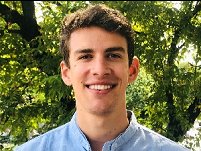
Nicolò is a current PhD candidate from Brescia, Italy. He recently completed his Master’s degree in Mathematical Engineering at the University of Padua, Italy, graduating in April 2023. Prior to that, he obtained his Bachelor’s degree in Mechanical Engineering, also from the University of Padua. For his master’s thesis, Nicolò focused on the development of the Shifted Boundary Method in convection-diffusion applications using an open-source software called Kratos Multiphysics. This method, primarily pioneered by Professor Guglielmo Scovazzi, involves shifting the location of boundary conditions from the true boundary to a surrogate boundary while adjusting the Dirichlet boundary conditions appropriately to preserve the optimal convergence rate.
Within the MSCA-DN GECKO, Nicolò will explore the use of IBRA-type discretizations in the context of CFD. This will include on one side the use of low order meshes and of adaptive remeshing and on the other to explore the possibilities of shifted boundary approaches (which sidestep the need of “cutting” the mesh) in using directly high order approaches. All these implementations will be performed inside the open-source Kratos-Multiphysics platform.
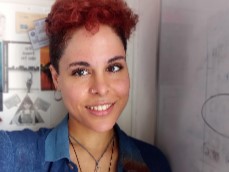
Polytimi is a current PhD candidate from Greece and Ethiopia. She obtained her bachelor’s degree in Mathematics from the University of Athens, Greece, and completed her master’s studies in Applied Mathematical Sciences at the National Technical University of Athens in February 2022. Her master’s thesis focused on the Bézier Decomposition of T-splines and NURBS for two-dimensional potential problems. Additionally, she explored an alternative approach to the method for NURBS, where the extracted Bézier functions served as the basis of the solution space.
Within the MSCA-DN GECKO, Polytimi will explore the applicability of IBRA-type discretization to problems in solid mechanics. This will imply studying the use of trimming in 3D volumetric solids, for which CAD support is sparse, and exploring the interaction between the discretization in multiple patches and material modeling-related aspects to assess the impact of the discretization. All these implementations will be performed inside the open-source Kratos-Multiphysics code.
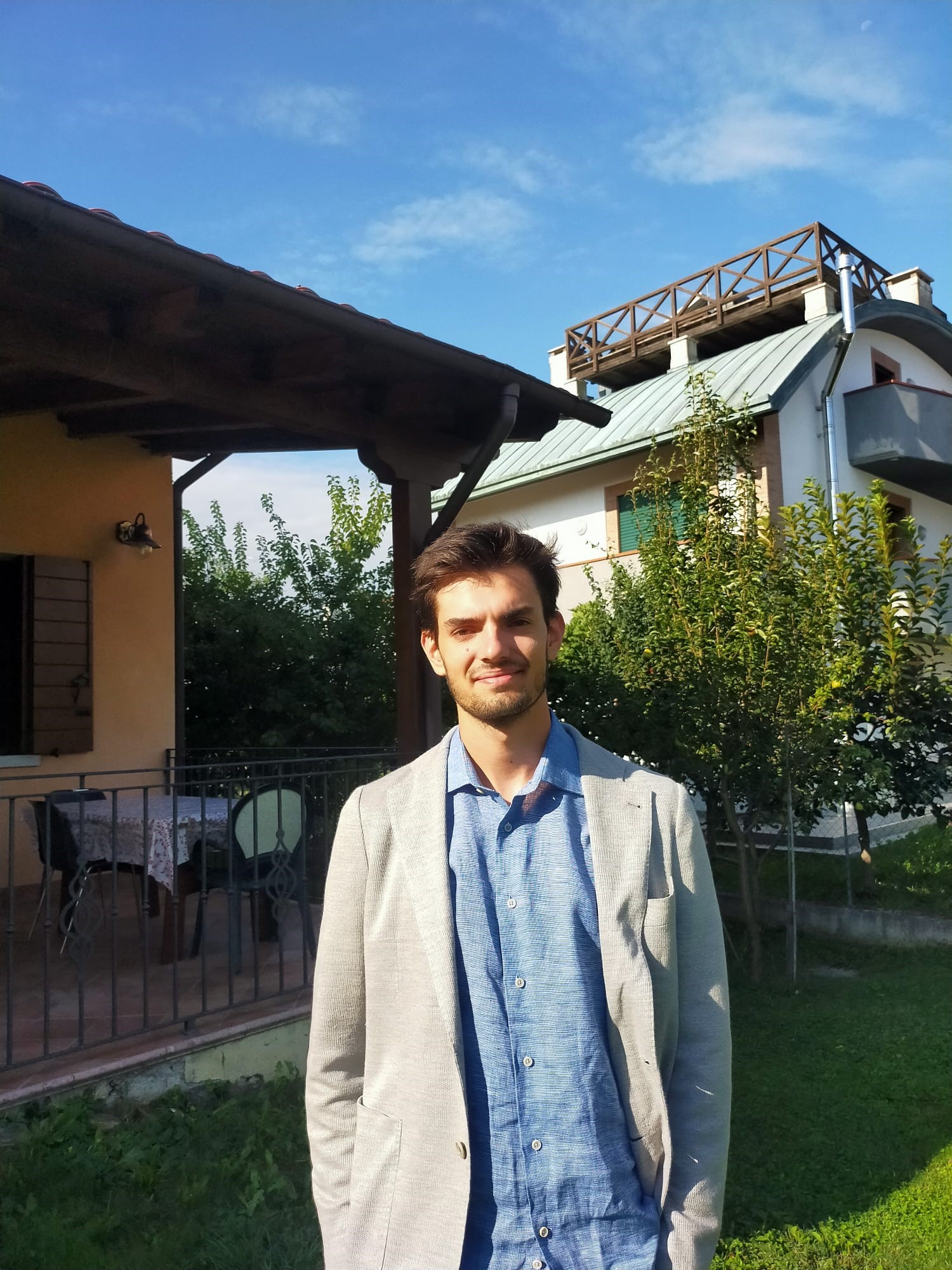
Andrea is a current PhD candidate from Venice, Italy. He recently completed his Master’s degree in Mathematical Engineering at the University of Padua, Italy, graduating in April 2023. Prior to that, he obtained his Bachelor’s degree in Aerospace Engineering, also from the University of Padua. For his master’s thesis, Andrea focused on the development of
a Topology Optimization algorithm for 3D Navier-Stokes flows.
This tool is based on the introduction of an artificial porous material inside the domain, then, an iterative process on the porosity at each point of the domain determines the optimal configuration of the geometry with respect to the chosen criteria.
Within the MSCA-DN GECKO, Andrea will explore the use of IBRA-type discretization in the context of implicit contact mechanics. This will include on one side the study of contact procedures in IGA and on the other the combination with non-linear constitutive models for solids. All these implementations will be performed inside the open-source Kratos-Multiphysics platform.
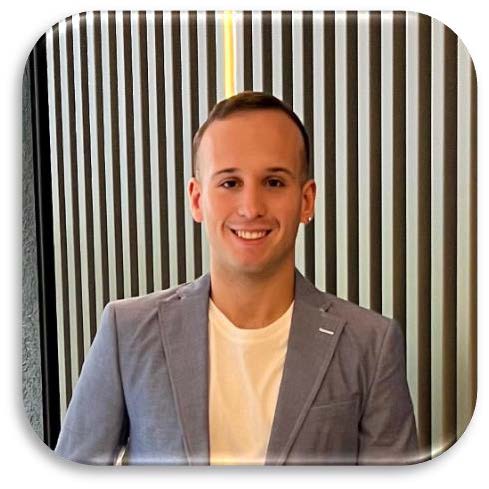
Juan is a current PhD candidate from Casilda, Santa Fé, Argentina. He recently completed his Master’s degree in Aeronautical Engineering at the Instituto Universitario Aeronáutico (IUA), Argentina, graduating in April 2023. For his master’s thesis, Juan embarked on the conceptual and preliminary design of a 9-seat General Aviation aircraft (FAR 23). Throughout his academic journey, Juan’s enthusiasm led him to develop a profound interest in Fluid-Structure Interaction problems. This interest culminated in his research on the determination of flutter critical speeds for various wing geometries. After concluding his studies at the university, Juan gained valuable professional experience within the aerospace industry. In his role, he had the responsibility of implementing and validating the flight model for a Flight Training Device (FTD) for the Argentinian Air Force.
Within the MSCA-DN GECKO, Juan´s research will focus on Co-simulation strategies involving IBRA for the solution of multi-field problems and he will be under the guidance and supervision of Prof. Dr.-Ing. habil. Roland Wüchner. He will work on the exploration, development and systematic assessment of suitable co-simulation approaches with all the associated methodological questions, like robust coupling schemes and suitable data transfer and also the development of robust and accurate transfer operators between different discretizations.
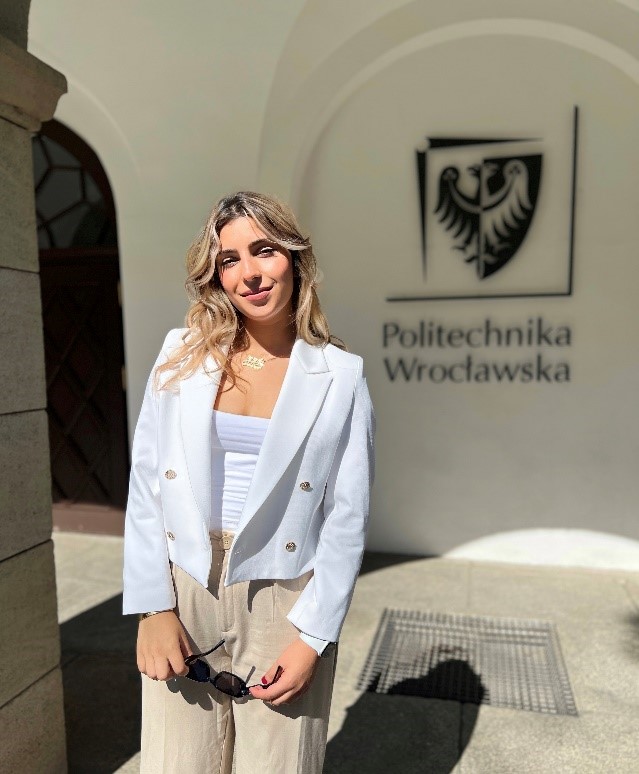
Maram is a current PhD candidate from Amman, Jordan. She recently completed her Master’s degree in Advanced Solid Mechanics from the European Erasmus Mundus scholarship program – STRAINS, specializing in Mechanics of Structures and graduating in September 2023. During her master’s she studied at the University of Lille in France, University of Calabria in Italy, National Technical University of Athens in Greece, and Wroclaw University of Science and Technology in Poland. She acquired the knowledge and skills in the field of solid mechanics for the modelling of materials and structures. Prior to that, she obtained her Bachelor’s degree in Civil Engineering, from Albalqa Applied University, Jordan.
Within the MSCA-DN GECKO, Maram will explore the field of Large Deformation Structural Elements with IBRA, including trimming and multiple coupled patches. Focusing on development and systematic assessment of high-accuracy and robust structural mechanics elements for large deformation isogeometric B-Rep analysis. All these implementations will be performed inside the open-source Kratos-Multiphysics platform.
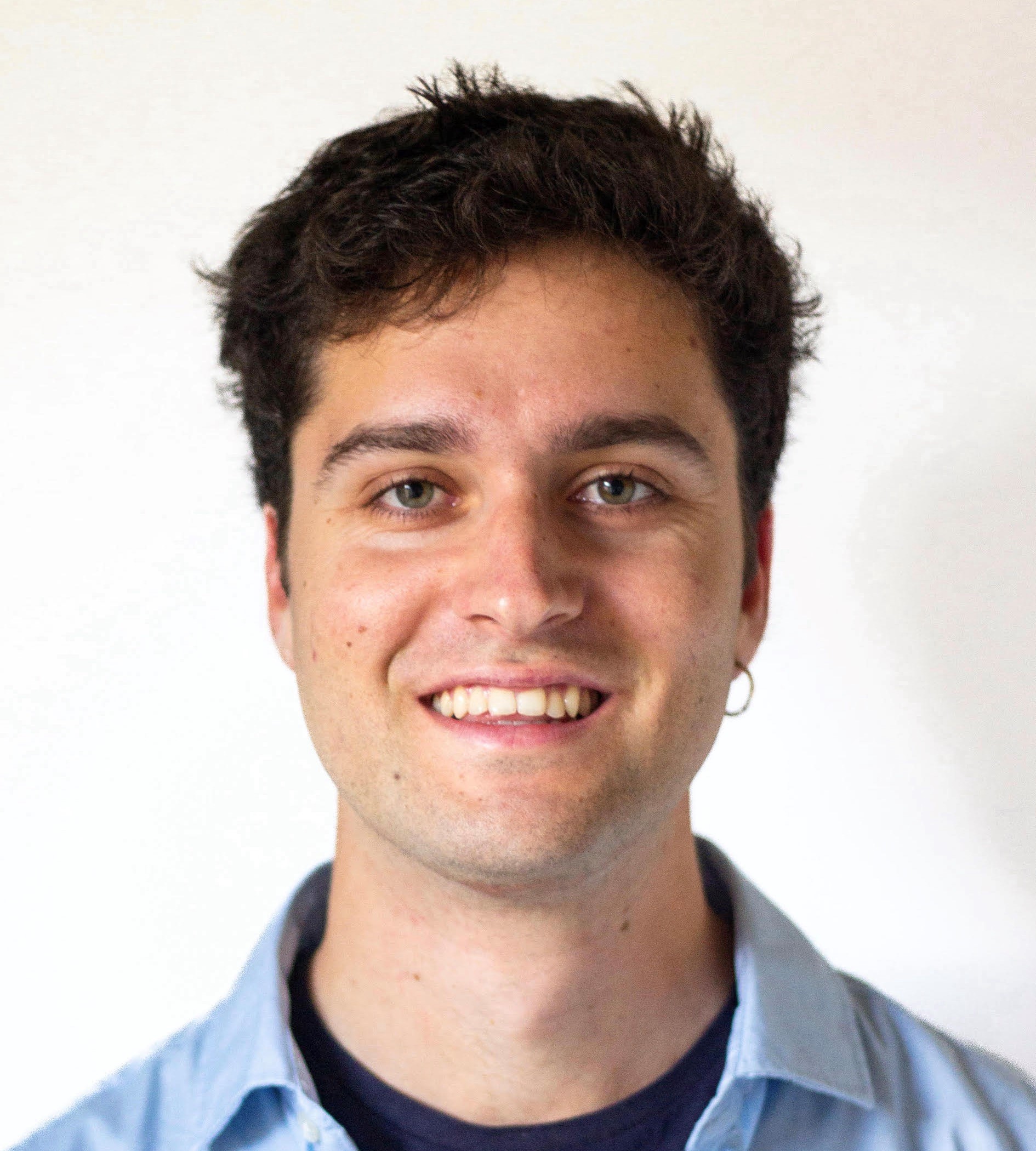
Lucas is a current PhD candidate from Gijón, Spain. He recently completed his Master’s degree in Mechanical Engineering at ETH Zürich, Switzerland. During his master’s thesis, Lucas focused on the implementation of a coupled model to describe the electro-chemo-mechanical behavior of lithium-ion particles using a phase-field formulation. The model integrates a two-way coupling between the Cahn-Hilliard equation and the mechanical problem, involving elastoplastic behavior and the presence of voids as introduced in the Gurson model, to capture the experimentally observed volume changes in secondary particles that ultimately compromise the battery life.
Within the MSCA-DN GECKO, Lucas will conduct research on the design of IGA-type discretization workflows. He will primarily work on the design and implementation of mathematical tools for immersed IGA, possibly including topics like efficient integration tools, multipatch coupling strategies, appropriate time-integration methods for both implicit and explicit dynamic problems, phase-field modeling of phenomena of interest.
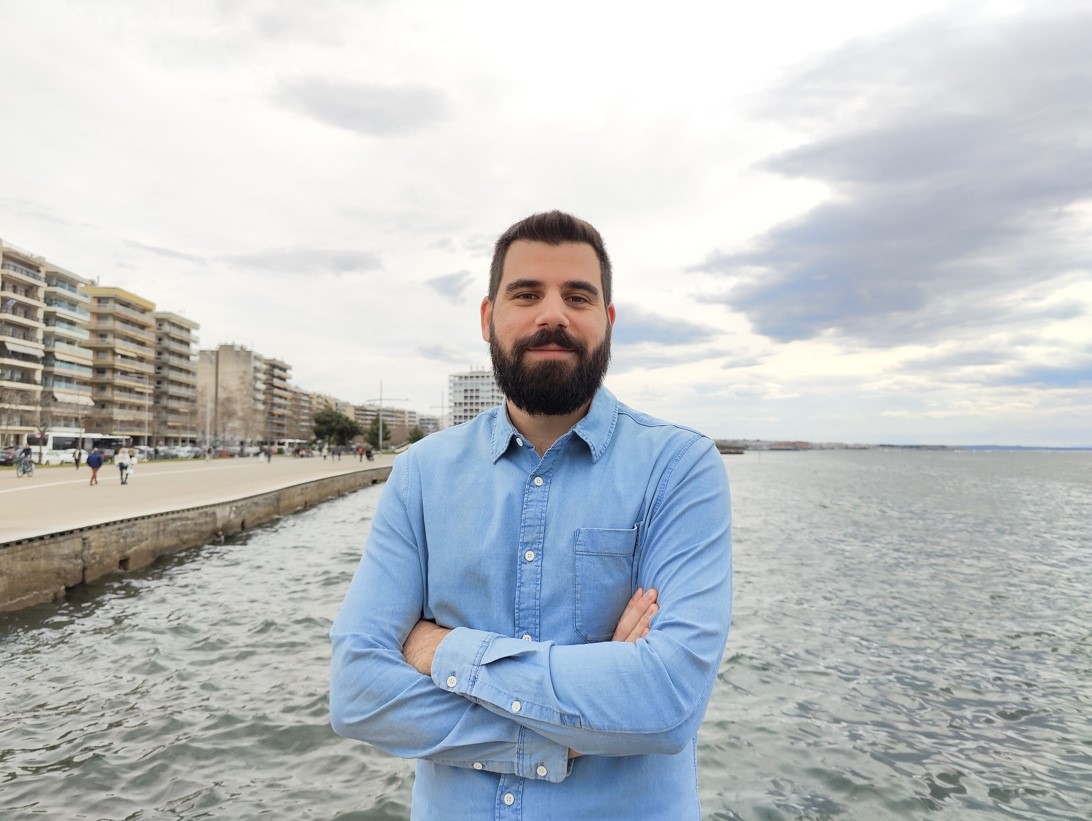
Angelos is a PhD candidate from Greece. He completed his Diploma of Mechanical Engineering at the Aristotle University of Thessaloniki (2020). His thesis project focused on the FE simulation of test benches used for durability testing of automotive leaf springs. Later he was involved in numerous research projects funded by European industries and the EU, related to fatigue, FEA, fracture mechanics and tribology.
Within the MSCA-DN GECKO, Angelos will conduct research on the design of IGA-type discretization workflows. He will primarily work on the design and implementation of immersed solid and shell discretization techniques, possibly including topics like advanced constitutive models, composite structure simulation, phase-field modeling of brittle fracture, structural dynamics.
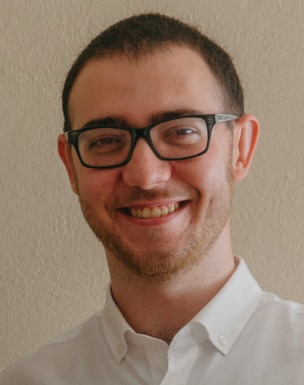
Doğuhan is a current PhD candidate from Ankara, Turkey. He completed his Master’s degree in Mechanical Engineering at the Middle East Technical University, Turkey, graduating in September 2023. Prior to that, he obtained his Bachelor’s degree in Mechanical Engineering and Physics from the same university in 2020 and 2021, respectively. For his master’s thesis, he focused on the development of a numerical method of spatial discretization and applied the developed method on the instability behaviour of fluid conveying carbon nanotubes.
Doğuhan will work towards the combination of the IGA BEM method and recent model order reduction (MOR) strategies that have been applied in a pure BEM-context. Specifically, he will implement MOR techniques to the time domain simulations of IGA BEM to reduce the required computational effort.

Philip Le obtained his B.Sc. degree in Mechanical Engineering at the University of Erlangen-Nuremberg (FAU). After that he graduated with a M.Sc. degree in Mechanical Engineering at the Technical University of Munich (TUM) in March 2023. During his Master’s studies at TUM, he specialized in structural dynamics and computational acoustics. For his master thesis, Philip developed and designed vibration absorbers in a Top-Down manner to attenuate the vibration.
Within the MSCA-DN GECKO, Philip will work towards efficient model order reduction schemes for one-way coupled and fully coupled vibro-acoustic analysis where the acoustic domain is described using a boundary discretisation. He will investigate how to combine Krylov and/ or modal-based strategies. In a next phase, the methodology will be extended towards isogeometric descriptions of the geometry incorporating IGA-BEM. Finally, Philip will extend the developed techniques to include fast assembly strategies for BEM systems such as the Fast Multipole and H-matrix approaches.

Wei Li is a current PhD candidate from Thessaloniki, Greece. She recently worked as an aircraft engineer of the amphibious aircraft AG600 in Aviation Industry Corporation of China from Apr. 2022 to Feb. 2024. Prior to that, she completed her Master’s degree in Aircraft Design at Nanjing University of Aeronautics and Astronautics, graduating in Apr. 2022. Before that, she obtained her Bachelor’s degree in Mechanical Design-Manufacturing-Automation from Henan Polytechnic University in July 2019.
For her master’s thesis, Wei Li focused on improving the computational efficiency of Nonlinear dynamics of Kirchhoff shell in the frame of IGA. She constructed a Reduced order model using the POD-DEIM (Proper orthogonal decomposition and discrete empirical interpolation method), realized her target.
Within the MSCA-DN GECKO, Wei Li will develop procedures enabling efficient accurate simulation of contacts in machine elements and systems in an efficient way. This will include developing user-friendly geometry description procedures, assessing different contact modelling strategies on benchmark problems, exploring Kratos interface files, etc..